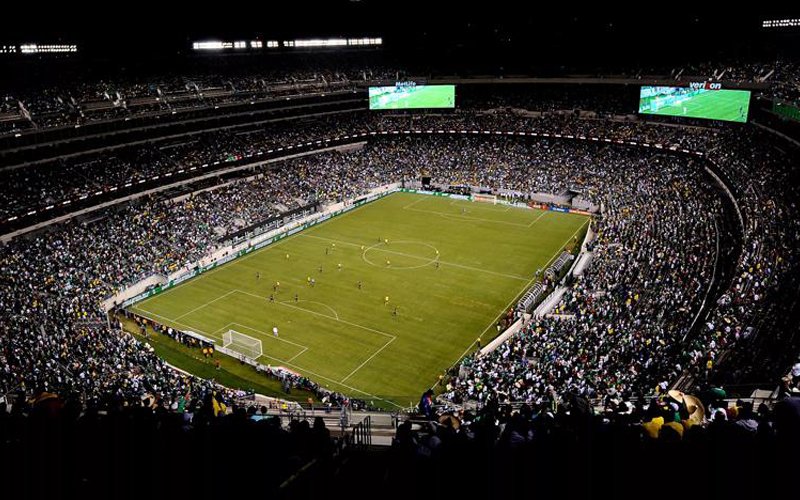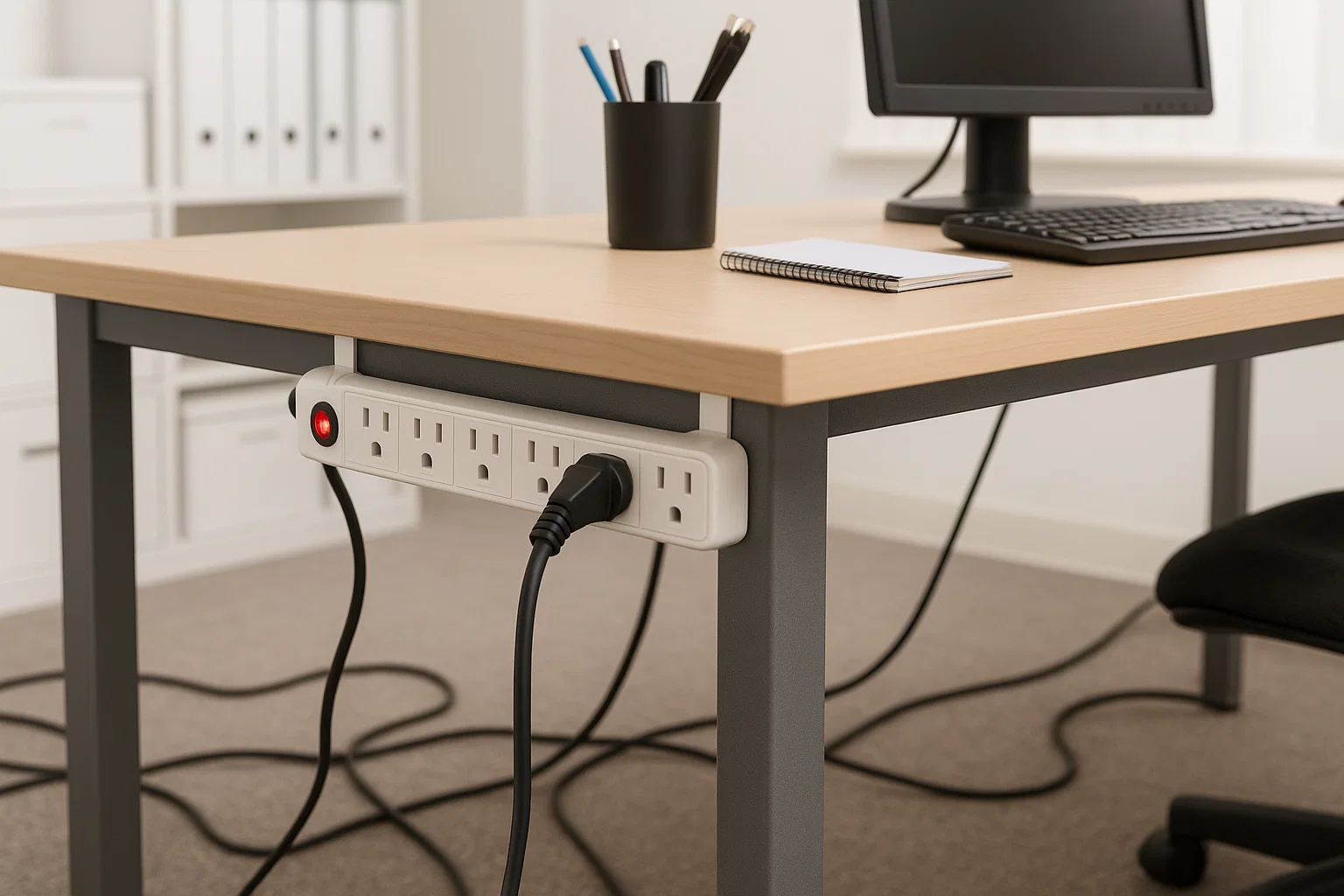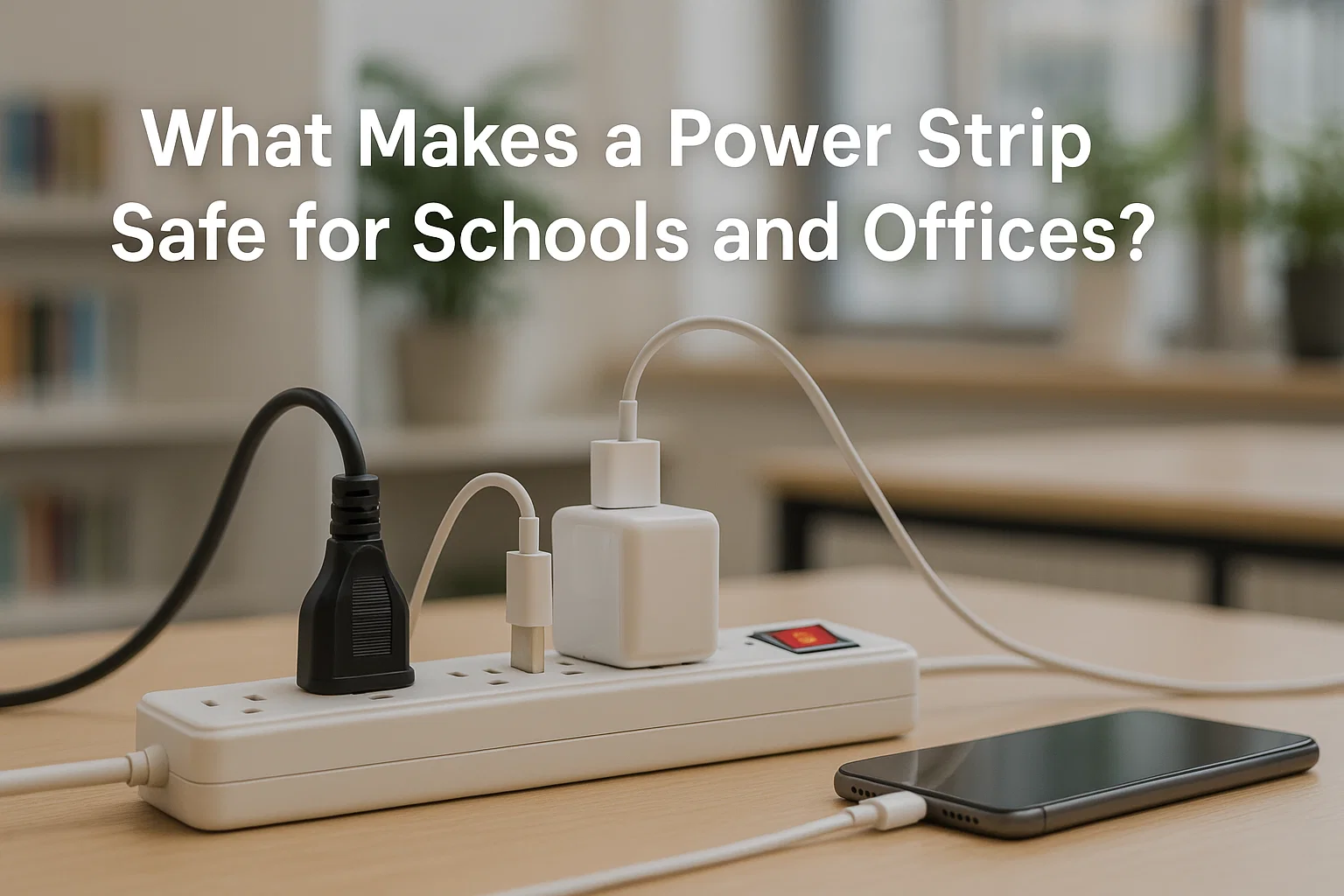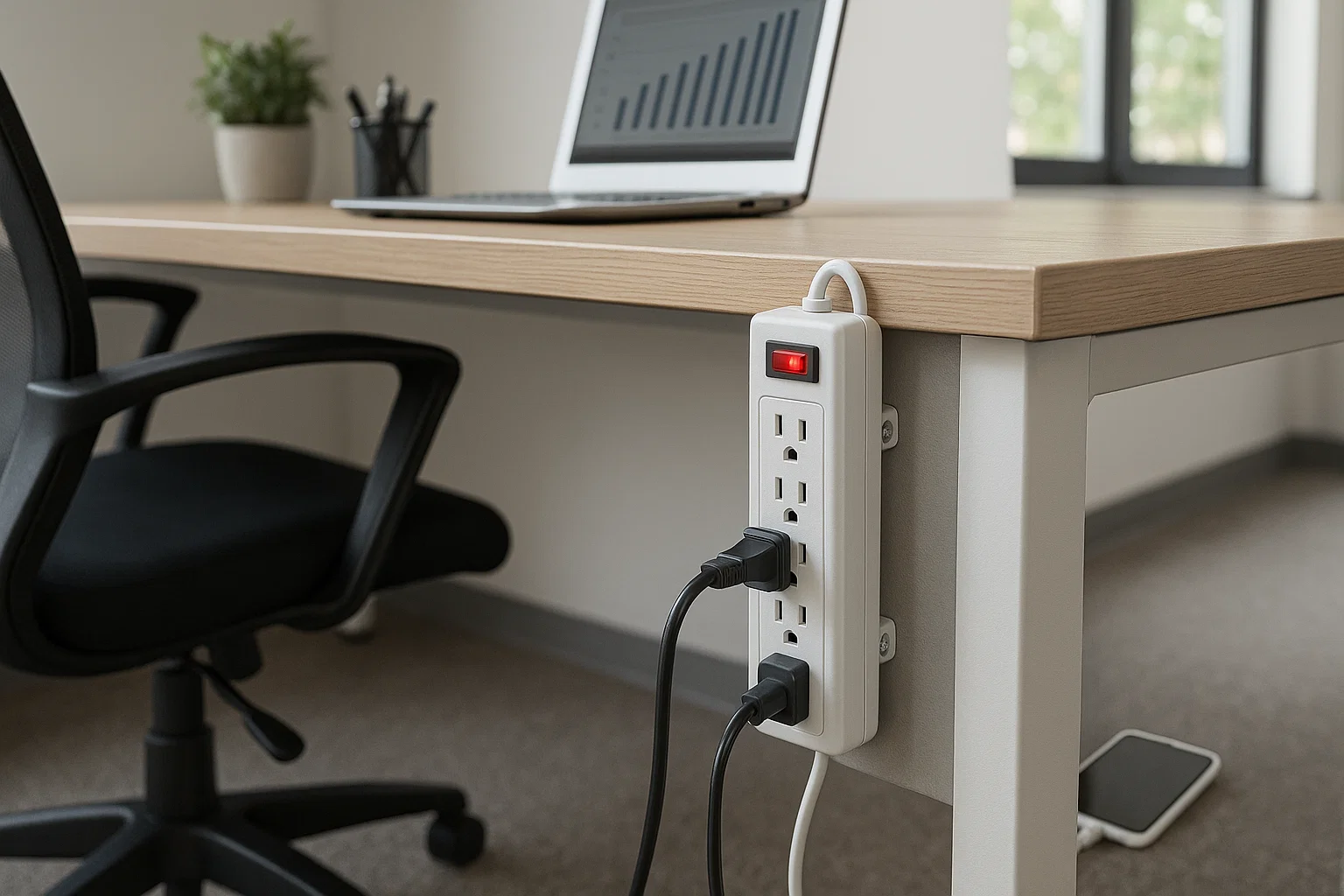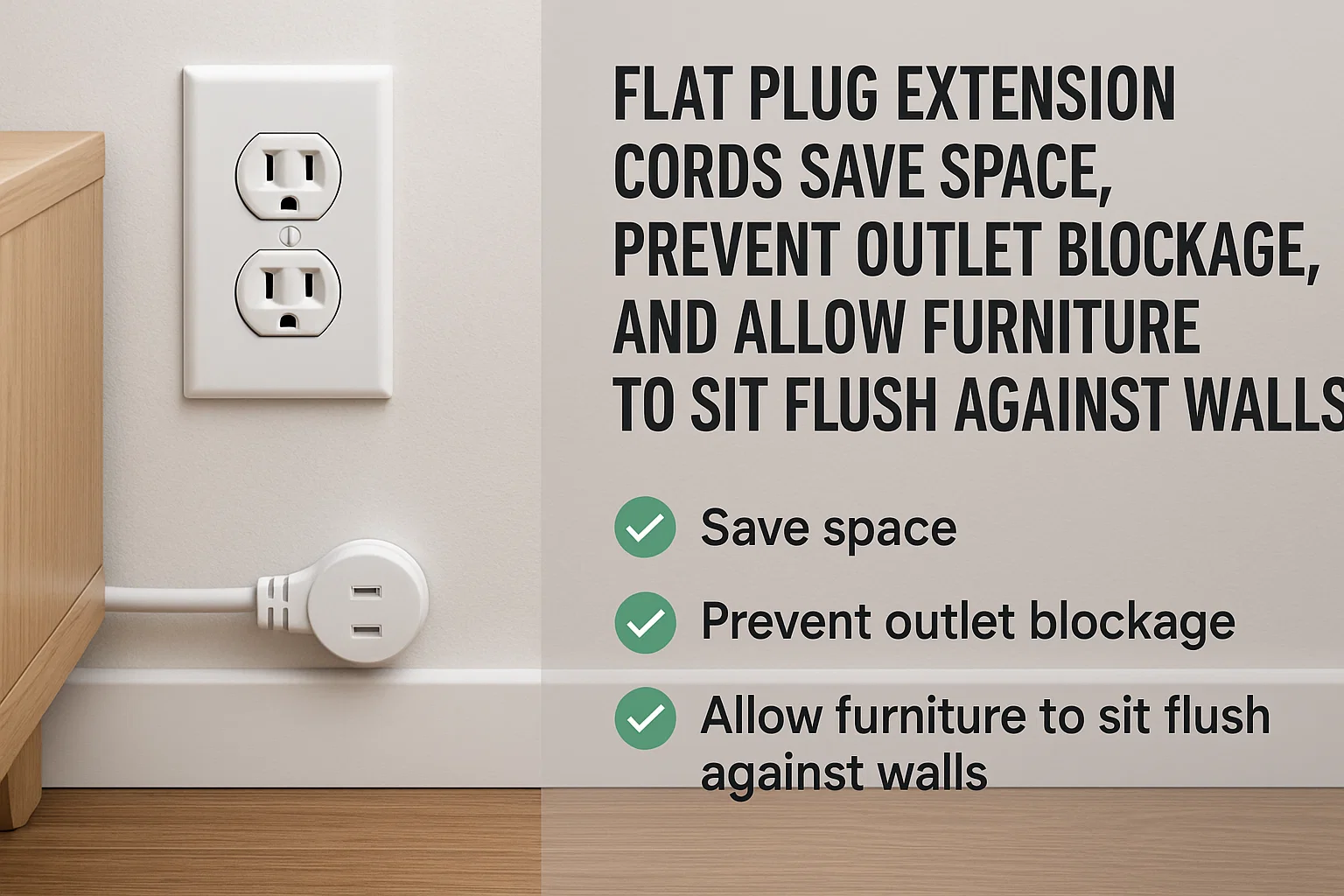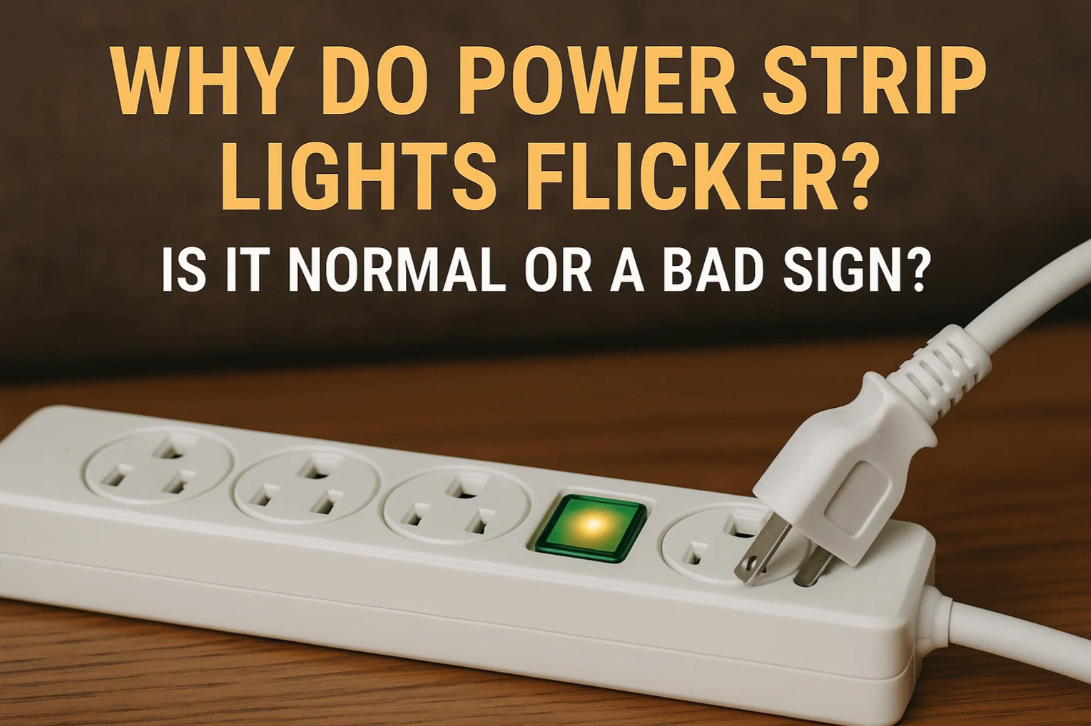
Power strip lights flicker—but does that mean danger or just wear and tear?
Flickering power strip lights can be harmless, but in some cases they indicate electrical instability, poor contact, or internal faults.
Let’s find out when flickering is normal—and when it’s a warning.
What Does It Mean When the Light on a Power Strip Flickers?
It might mean nothing—or signal something serious.
A flickering light often means the indicator LED is unstable or aging, but it can also point to loose wiring or power fluctuations.

Possible Causes and What They Tell You
There are several technical reasons why a power strip light flickers. Some are cosmetic, while others require action.
Common Causes of Flicker
| Cause | Description |
|---|---|
| Aging LED Indicator | The LED light is wearing out from years of use |
| Loose Wall Socket Connection | The plug isn't secure in the wall outlet |
| Voltage Instability | The input voltage is fluctuating from the power supply |
| Overloaded Strip | Total load exceeds rated capacity |
| Internal Wiring Fault | Manufacturing defect or damaged solder points |
| Failing Surge Protector | MOVs degrading after repeated surges |
I’ve seen clients report flickering as a defect, when in reality, it was a worn wall socket. Knowing the difference helps prevent unnecessary returns and builds brand trust.
Is a Flickering Power Strip Light Dangerous?
It depends on what’s causing the flicker.
Mild, steady flickering is often safe. But sudden or irregular flickers—especially with heat or smell—can signal electrical danger.

How to Judge the Risk Level
Visual clues can help you determine if the strip is still safe to use or needs to be replaced.
Risk Assessment Guide
| Flicker Pattern | Risk Level | Likely Cause | Recommended Action |
|---|---|---|---|
| Soft, steady flicker | Low | Aging LED | No action needed |
| Intermittent blinking | Medium | Loose plug or voltage drops | Check wall socket |
| Flicker + smell/heat | High | Internal fault or overload | Unplug immediately |
| Flicker during use | Medium | Power load fluctuation | Test under different load |
From a procurement point of view, offering strips with clear LED indicators and user documentation is a small investment that helps your end customer stay safe.
Can Voltage Instability Cause Flickering?
Yes, especially in older buildings or overloaded circuits.
If your home or office has inconsistent power supply, flickering may be the result of voltage fluctuation—not a product fault.

The Role of Electrical Environment
Even if the power strip is brand new and certified, unstable voltage from the grid can still cause flickering.
Environments Prone to Flicker
| Location Type | Flicker Risk | Reason |
|---|---|---|
| Old Residential Building | High | Worn wall sockets or fluctuating voltage |
| Modern Office Building | Low | Stable and regulated circuits |
| Factory with Heavy Load | High | Shared high-load appliances |
| Backup Generator Setup | Medium | Irregular output waveforms |
This is why I always advise clients to perform load testing in the destination market—even if the products pass internal QC in our factory.
Could the Flicker Be a Surge Indicator Warning?
Yes, in some models with protection status lights.
If the LED labeled "Protected" or "Surge" is flickering, the surge protector component may be degraded.

Understanding Surge Protection Status Lights
These lights are connected to the MOVs (Metal Oxide Varistors) inside the power strip. If the MOVs are wearing out from repeated surges, the light may start to flicker as a warning.
Surge Light Behavior
| Indicator Status | Meaning |
|---|---|
| Solid Green | Protection active |
| Flickering Green | Surge protection degraded |
| No Light | Protection may be lost |
| Red Light | Surge failure—replace immediately |
For models with surge protection, I always recommend using higher-rated MOVs (900–2450J) in North American markets. It helps maintain performance under real-world conditions.
What Should You Do If the Light Flickers?
Check, test, and if needed—replace.
If the flicker is new, unusual, or accompanied by other symptoms, it's safer to replace the power strip.

When to Take Action
Unplug the strip and inspect for other issues. If it feels warm, smells burnt, or controls critical equipment, don’t wait—replace it with a new, certified model.
Action Plan
| Situation | Action Recommended |
|---|---|
| Flicker without other symptoms | Monitor, but likely safe |
| Flicker + Heat | Stop using immediately |
| Flicker + Discoloration | Replace the strip |
| Flicker after a storm | Surge protection may be degraded |
✅ Tip: Always look for strips with certifications like ETL, UL, or cETL, and include overload or surge protection for added safety.
Is It Time to Replace Your Power Strip?
If it's old, overloaded, or showing signs of wear—yes.
Flickering can be an early warning. Replacing your power strip ensures continued safety and performance.

When Replacement Is a Smart Move
If you're distributing or sourcing power strips for retail, hotel chains, or offices, quality matters more than ever. Replacing flickering units proactively helps avoid safety claims and enhances your brand image.
Signs You Should Replace
| Symptom | Replace? |
|---|---|
| Flickering "Protected" light | Yes |
| Strip older than 3–5 years | Yes |
| LED light dead or erratic | Yes |
| Strip used for high-load devices | Yes |
As a manufacturer and supplier, we always recommend replacing power strips every 3–5 years, even if no issues are visible. Aging parts degrade safety over time.
🔄 Noticed flickering or heat? It’s time to replace your old power strip with a new, safety-certified one.
Conclusion
Power strip lights may flicker due to age, voltage issues, or wiring problems. While some flickers are harmless, others can be early warning signs—it’s better to check early and replace when in doubt.

